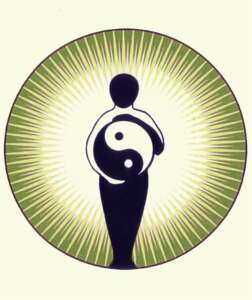
When discussing East Asian Medicine with new patients, there can always be some confusion. This is because the terms used don’t always match up with allopathic medicine. This doesn’t make them any less real, but is does demand some clarification to help people understand things better.
Chinese (and most East Asian languages) don’t work like English. They are more conceptual, contextual and relational. Not word for word. And when you try to jam that into the rigid Western language system, a lot can get lost.
One of the most misunderstood concepts in East Asian Medicine is the term qi (pronounced “chee”). Many people imagine it as some invisible life force that can not be measured or even visualized. However, the literal translation of qi is gas, not energy. Think air, vapor or breath. And qi is not magic. It’s matter. A subtle, but very strong matter, in motion.
Qi is movement inside the body. It’s the transmission between bodily systems. It’s the quiet hum of biological activity that keep you alive. Think of your heartbeat, which is controlled by electrical signals, your blood vessels releasing nitric oxide to relax, breathing patterns that change your brainwaves or the fascia acting like a fiberoptic network telling your muscles how to respond. Western medicine has numerous words to describe these functions, including gasotransmitters, bioelectric signals, mechanotransduction and more.
But East Asian Medicine has one word – Qi. And that’s because qi isn’t a thing, it’s a function. Qi is a way of describing flow, movement and communication inside the body. So when you hear the phrase, “Qi is blocked,” it means that your body isn’t communicating properly and dysfunction is occurring. And acupuncture is not some esoteric ritual. It’s a tool that gets the signal flowing, allowing the systems to reconnect and start to function again.
Qi is always in a state of continuous flux, transforming from one aspect to another. It is neither created nor destroyed, it just changes how it manifests. For example, when qi is deficient, a person might experience fatigue, cold limbs, weakness, shortness of breath, loose stools, a poor appetite and a weak voice. When qi is stagnant or in excess and not flowing smoothly, a person might experience pain, chest oppression, frequent sighing, irregular menstruation, irritability, anger, constipation and insomnia.
Regardless of the state of qi, East Asian Medicine offers many solutions. Tools like acupuncture, tai chi, cupping, qigong, gua sha, moxibustion and more can all play a role in how qi flows and functions. If you feel that you’re out of sync and you just can’t seem to get back on track, it might be time to consider East Asian Medicine. Afterall, this medical system does have a 3000 year old track record of helping people heal and live happier, healthier lives. Just something to think about.

